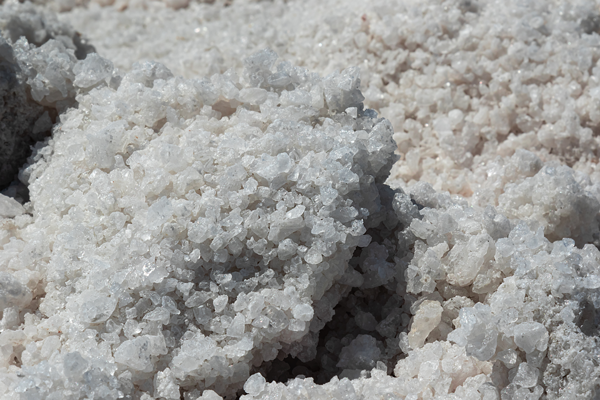Once you select a water softener for your home or business, a few decisions remain before you can enjoy soft water. One of the most important decisions is which type of salt you will use for your water softener. With several salt choices available, it can be difficult to discern which option is best for your system. Different types of salt for water softeners have various levels of purity, drawbacks, and benefits. Learn what makes each type of salt unique to determine which salt is best for your water softener.
Solar salt
Solar salt is an opaque-white salt commonly used in water softeners. The creation of solar salt is an extremely lengthy process. The process begins by putting brine or seawater into shallow, interlocking pools. The water naturally evaporates through sun and wind exposure for three to five years, leaving solar salt at the end of the process. Once the salt is ready to harvest, it is washed and processed into either pellets or crystals for various uses.
Solar salt is one of the most popular types of salt for residential water softeners and is 99.6% sodium chloride. It can be used in most settings with hard water, but there may be better options for settings with extremely hard water since 0.03% of solar salt is insoluble.
Evaporated salt
Evaporated salt is the purest, highest-quality option for water softeners. Creating evaporated salt involves manufacturers producing crystallized salt using water and steam. This type of salt is composed of up to 99.9% sodium chloride and lacks additives or natural contaminants, making it the most expensive salt variant. This type of water-softening salt is available in pellets or cubes.
Because evaporated salt does not involve naturally occurring contaminants, it is 100% soluble. The lack of insoluble components keeps your salt from mushing together and creating bridges in your water softener. The absence of materials affecting your brine tank allows your system to run cleaner with less maintenance.
A popular variation of evaporated salt is red-out salt. In addition to sharing the same qualities as regular evaporated salt, red-out salt includes an additional rust-removing agent that is best for well-water systems or water with high iron levels. The additive means your water softener treats hard water and keeps your household appliances, fixtures, and clothing from rusting or staining.
Rock salt
Rock salt is extracted from underground salt mines and is not treated with any refinement process. Although it can be used for water softeners, rock salt is typically not recommended. Some people use rock salt because it is more cost-effective than solar or evaporated salts. Still, it is less effective due to the concentration of foreign minerals like calcium. Additionally, those who use rock salt in their water softeners may find that their systems require more frequent and intense maintenance due to blockages or buildup. Rock salt is better suited for use as ice melts instead of water softener salt.
Block salt
Block salt prevents bridging and mushing in a water softener's brine tank. For block salt to be effective, the water level in your brine tank must be high enough to submerge the blocks completely. It is a highly pure and soluble form of water softener salt, but it should only be used when a manufacturer recommends it.
Working with the Indy Water Pros
Choosing the right water softener salt can be a hassle, assuming you've chosen the right water softener system for your home or business. Partnering with the professionals at Advantage Water Conditioning guarantees that you have the experience and expertise to find the right solution. Our team of experts will help you find the best residential or commercial water softener system, manage your salt supply, and maintain your system, whether rented or purchased. Contact your Indy Water Pros today to learn more about our services and get started with soft water.






